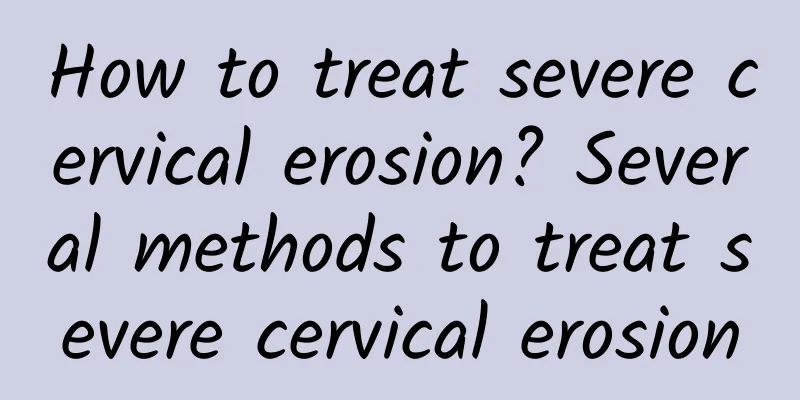How to prevent adenomyosis

|
How to prevent adenomyosis? Preventing adenomyosis: 1. Avoid unnecessary gynecological examinations during menstruation. If an examination is necessary, be careful not to squeeze the uterus too hard to prevent the endometrium from being squeezed into the fallopian tubes and causing endometrial implantation in the abdominal cavity. 2. Avoid intrauterine surgery during menstruation. For example, the fallopian tube patency test must be performed 3 to 7 days after the menstruation is over. If the surgery is performed before the menstrual blood is clean, endometrial debris may enter the abdominal cavity through the fallopian tube and cause ectopic implantation. 3. Try to avoid gynecological surgery near the menstrual period. If it must be performed, be gentle and avoid squeezing. 4. Adhere to contraception and do not or rarely have artificial abortions. Because negative pressure suction is used, if the pressure and method used during the operation are inappropriate, it can also cause blood to flow back into the abdominal cavity and cause endometriosis implantation. 5. Extremely retroflexed uterus or stenosis of the cervix and vagina, congenital uterus without vagina and other reproductive tract malformations, cervical adhesions can all cause poor or impossible menstrual blood discharge, and retrograde menstrual blood flow, causing endometriosis. Therefore, the above diseases should be actively treated to prevent the occurrence of endometriosis. 6. Avoid iatrogenic implantation When performing myomectomy, especially when the uterine cavity is penetrated during the operation, or when performing cesarean section or cesarean section to remove the fetus, the surgical incision should be protected to avoid implantation of endometrial debris in the incision, causing abdominal wall incision endometriosis, or implantation in the pelvic cavity, causing pelvic endometriosis. Dietary precautions for adenomyosis! Patients with adenomyosis should not eat sour foods. Acidic foods have astringent and astringent effect, which makes the blood stagnant and is not conducive to the smooth flow and discharge of menstrual blood. Therefore, people with dysmenorrhea should try to avoid eating such foods during menstruation. Acidic foods include rice vinegar, hot and sour vegetables, kimchi, pomegranate, green plum, bayberry, strawberry, carambola, cherry, sour jujube, mango, apricot, plum, lemon, etc. |
<<: What are the causes of ovarian cysts?
>>: What are the symptoms and treatment of uterine prolapse?
Recommend
What are the symptoms of chronic cervicitis in women? 5 clinical manifestations of chronic cervicitis
What are the symptoms of chronic cervicitis? 1. C...
Eat more fruits and vegetables to lose weight. Is it the right way to eat fruits? Which fruit should you choose, high GI or low GI?
Most people know that if you want to lose weight,...
Clinical symptoms that patients with cervicitis need to pay attention to
The symptoms of cervicitis are relatively common,...
Hyperprolactinemia surgical cure rate
How high is the cure rate of hyperprolactinemia s...
Dark chocolate = high calories? "Smart way" to eat low calories and protect your heart
Protect your heart in summer and avoid cardiovasc...
Say goodbye to edema! 2 Yoga moves to slim your butt and legs
Supermodel Wang Liya shares some yoga stretching ...
What are the symptoms of cervical erosion?
If you want to cure cervical erosion better, you ...
What medicine should women take for irregular menstruation? Gynecologists teach you how to regulate menstruation
The occurrence of irregular menstruation makes ma...
Cost of treatment for endometrial tuberculosis
Endometrial tuberculosis is the most serious type...
Can I get pregnant if I have vulvar leukoplakia?
The appearance of vulvar leukoplakia is very harm...
What to eat when menstrual flow is light? Eat more blood-enriching foods
Many women are troubled by abnormal menstruation....
I feel tired after running for only 10 minutes~ Improve your athletic performance and eat more purple foods to supplement resveratrol!
In recent years, the trend of exercising has been...
Can ectopic pregnancy really be cured?
In life, more and more women suffer from ectopic ...
How much does it cost to have an abortion in Xi'an
It's hard to be a woman, because if you don&#...
What is a cervical cyst?
What is a cervical cyst? 1. The medical name of c...









